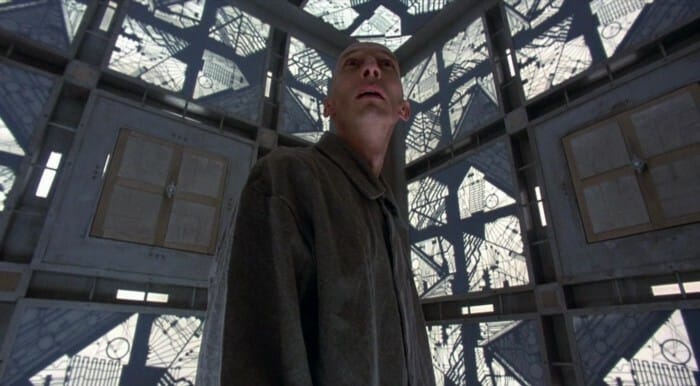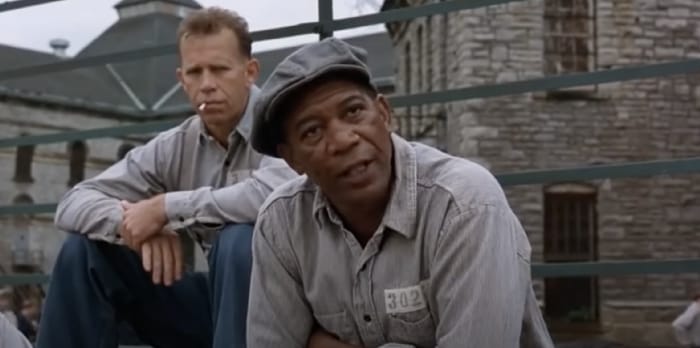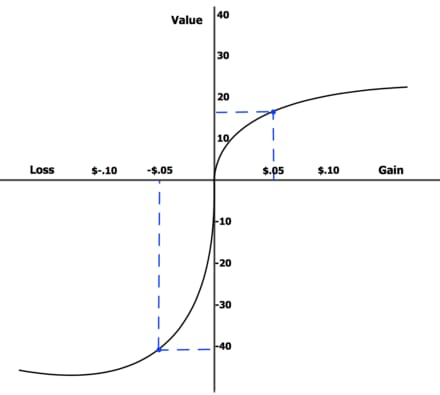Why I Am Leaving My Software Engineer Career
This article is for people considering transitioning into a software engineer career and people who are software engineers but feel stuck at work.
I’m a biologist-turned-machine-learning-engineer. After working in the industry for two years, I decided to transition into something else again.
In this article, I will share what changed my mind and how I arrived at my current decision. It is not like I had an epiphany one day and jumped on it. The change happens gradually. Let me start from the beginning.

I wonder what’s outside my software engineer life
1. The Trigger
This was a year ago. I just joined my current team. Everyone on the team was very supportive and knowledgeable. The only thing that bothered me was that all seniors always looked tired. If you have ever worked in big tech, you would know the ramping up for a new hire can take months. By the time I finally familiarized myself with most of the services and codebase we own, 8 out of 10 people had left the team, including our manager.
When each team member announced their departure, I would ask for a 1–1 to see what I could learn from them. I also had two mentors that let me discuss things that weren’t directly related to my projects. Here is some advice I collected: “Never chase the money.” “Don’t jump around because it takes a year to learn the environment and let people give you meaningful feedback.” “If you don’t feel you are learning, you should change your job.” “Leave here as soon as possible.”
That was when I started wondering how people make job-changing decisions and how I should make my decision. Everyone has a different experience and values different things; what should be my criteria? I don’t like the idea of “I don’t like the place; I will just leave.” I’m too competitive to admit I can’t fix this place, whether the problem originates from me. My logic was: if I didn’t like this place, I would work so hard and then quit so that my company would feel bad about my leaving. Looking back, that was so naive and funny.

when fight is meaningful
I imagined my company as a monster in my head. Well, in reality, it’s many pieces: the culture, the practice, and the people who have a direct impact on me. It’s not a single thing I can target and fix.
I remember once, in a meeting, there was a senior who was two levels above me. For some reason, he said, “I am not smart as those kids who bought bitcoin.” I don’t remember what that meeting was for anymore, but I remember those sentences, and I don’t think he was joking. He did look miserable in those days.
From there, it became clearer that I didn’t look forward to my career path anymore. I stopped taking pride in the things I am building and in the customers I am helping because I can see myself doing the same thing for the next ten years. That was scary.
Even tho the technical details are different each time, and I definitely learn a lot through each project, there are so much more other things I haven’t explored in my life. How about writing and painting? How about comedy and filming? How about running my own business? That’s a dream I have had since elementary school.
This golden handcuff starts hurting me. I literally rather become homeless than repeat myself for the next ten years.
I need a way out.

when I’m lost in cubes
2. The Real Problem
More than half of the population are unhappy about their jobs, so what keeps them at their job is probably not they enjoy it. I gained a deeper understanding after moving away from my engineering job.
So, I decided to change my career, but change into what? Again, I’m lost. I have dozens of ideas, but where should I start? How can I make a decision that I know I won’t regret? How to get a better job? What even is a better job? Just those questions can be overwhelming, let alone thinking about them after you worked 8 hours on things you don’t enjoy anymore. It’s physiologically hard.
I realize that’s how most people get stuck. The less time you have left to think, the less time you have to make better decisions. It’s a poverty trap of time.
How to get out of it? Here are my answers. But before that, I need to share some ideas that will lay the ground for the actions I’m going to take.
3. Deinstitutionalization
FIRE isn’t a new concept. In case you don’t know, it represents Financial Independence and Retire Early. It is a movement of people devoted to a program of extreme savings and investment that aims to allow them to retire far earlier.
The real impact of FIRE is not just the fact it demonstrated the possibility of retiring early. What’s more important is it helps you to realize that you don’t have to live your life like how society expects you. You can redefine yourself, your value, your success, and your happiness. You can break through the shackles and build a new world for yourself, where everything is evaluated based on its value in a consumerist relationship.
The main ideas behind the FIRE movement originate from the 1992 best-selling book “Your Money or Your Life” written by Vicki Robin and Joe Dominguez, as well as the 2010 book “Early Retirement Extreme: A Philosophical and Practical Guide to Financial Independence.” These authors provide a new perspective to re-examine the capitalist social structure under consumerism and how it shackles our freedom.
“To achieve financial freedom, we need to decouple ourselves from the existing societal roles we are currently in.” These existing roles serve as a “lock-in,” which promotes involution, “A cessation of development or progress despite intense inner competition.” In plain English, it just means you have to work harder to achieve the same level of return compared to an earlier generation. Or even simpler, lock-in is a system to turn everyone into a wage slave.
In the movie Shawshank Redemption, a concept called institutionalization is mentioned. During the process of institutionalization, individuals are adapted to and rely on predefined rules and processes. Eventually, individuals lose their self-consciousness and have to live in the existing system.

“Institutionalized”
My problem with machine learning and programming in general, among several other things, is its specialization. It increases the business's productivity, but it also increases my opportunity cost as an employee because all my time is spent improving very specific skills:
Once I lost my job, the only job I could get was in the same field, of course, until my job was replaced by chatGPT.
The later I decided to change my career, the more time I would have lost.
Since more people compete for the same position, people will be evaluated by non-sense stuff, like your job interview tricks, internal politics, etc. It’s like there is a cookie-cutter for the best engineer when there shouldn’t be one.
4. Beyond Employment
You may think you can simply not work hard; then, you won’t be a slave. That's right, just education and employment won’t lock you in. There are several other pieces, such as consumerism, debt, and retirement.
I have been learning about marketing recently. There are 6000 marketing tools. Everyone trying to sell you something does so by associating your identity with a better social status that you care about, one way or another.
Well, deinstitutionalization will help us destress and enjoy life more, but many of us aren’t aiming for leisure time. We want to be in the game. We want to pursue dreams and become wealthy. Or, for me, it’s about security. I just don’t feel safe being a plebeian. What do I do then?
Here are my answers.

be a baby
5. Baby Steps To Business
My answer is to bootstrap a small business. Because I need business and assets to decouple my income from my time. I took time to learn about venture-tracked startups by taking courses from YC and talking to people who had successful exits. I think bootstrapping a small business is good for three reasons:
It’s less stressful than a fast-scaling venture-tracked business, so easier to start psychologically.
You take full responsibility for the business. Remember, it’s small.
The solution you built is more replicable, so you can move on or build a portfolio of businesses instead of fixating on one.
The last one sounds particularly good to me, who jumped on the AWS solution architect associate exam as a six months old junior developer. I am attracted to the big picture and system kind of stuff.
OK, business it is. But there are so many. Where should I start?
Here is how I approach it. I researched beginner-friendly businesses and started playing with them. My current phase is to get a basic understanding of each type and how they can synergize. Just the same as how I approached the AWS solution architect associate exam.
Here is a list of ventures you can take as baby steps. As some of you know, I have started the first several.
Writing (Conversation, Blog, Newsletter on Twitter, Medium, Substack)
Videos (YouTube, TikTok, Udemy)
Consultancy (mentorcruise)
Buy small business(Quietlight, flippa)
Being an agent in Social Media Advertising for local business
Bootstrap a SAAS idea (microconf)
Create craft or info products (Etsy, Gumroad)
Each direction seems very different, but if you dive into it, however, as a beginner, most of the basic skills are shared. For example:
How to research your market and validate your ideas
How to find the niche that you enjoy working on
How to juggle different things going on in life and keep yourself physically and mentally healthy
How to do marketing, copywriting, and distribution channels
How to understand the basic financial statement and accounting practice
How to network and develop new relationships
These business starts small and tend to fail, but in the long run, they all have the potential to grow into million dollar business. More importantly, your skills and experience compound, and that is what I bet on.
Individuals assess their loss and gain perspectives asymmetrically. If you’re willing to bleed a little every day, you may win big later

value function for loss averssion
6. New Era
I discovered extra bonuses since I started my entrepreneurial journey.
My periodic mental traps disappeared. I had a major depression 3 years ago when I quit my Ph.D., and I still feel anxious and cry quite often every other morning. I tend to ruminate on my thoughts and slide into this sad, critcal, or even resentful mental state and stay there for very long before getting out. Somehow, those mental traps disappeared in the past three months. I felt abnormal initially, but now I’m more used to these lighthearted feelings.
I became more sensitive to small but enjoyable things. Several days this winter, I spent the entire day writing and editing in Mcdonald’s, which has nice AC and quick wifi. When Garret got off work, he would pick me up, and we went to have soup and a sandwich in a local shop. There was one moment in that soup place I was thinking to myself, “this is so nice; I can live like this forever.”
I get connected to interesting people easily. Somewhere last year, I was applying for an incubator called Antler, but they require a cofounder to be enrolled. I remember crying over the phone, talking to my husband, and thinking I would never find a cofounder. With my current network and English speaking, I will never get into business. So my husband had to pause his work and come out of the office, telling me, at worst, he could be my co-founder. After he said that, I realized it was just one of the mental blocks I have, but still, I saw it as a major effort to network and find similar-minded people. Now several months past, and I have met various people on various occasions. I learned my fear was because of my ignorance. I didn’t know there were so many resources and opportunities out there to help people like me.
My thinking process became straight. I tend to over-internalize other people’s opinions and reactions, and I constantly feel like I am a fraud no matter what I do. I still have those feelings, but after talking to many people and working on so much stuff, I realized that everybody is a fraud. Most people don’t know what they are doing; they just don’t let that stop them. They figure out the answer each time, piece by piece. Magic happens when you take full ownership of your life, your perspective and experience become more fluid, and you can open to ideas and people that sound so stupid or despicable in the past.
Closing
So that’s everything for today. Let me know if the information I shared has brought more clarity to your decision about your career. Whether you can find a new passion in your current job or you decide to leap, I hope you will have the most fun with what is coming next.
